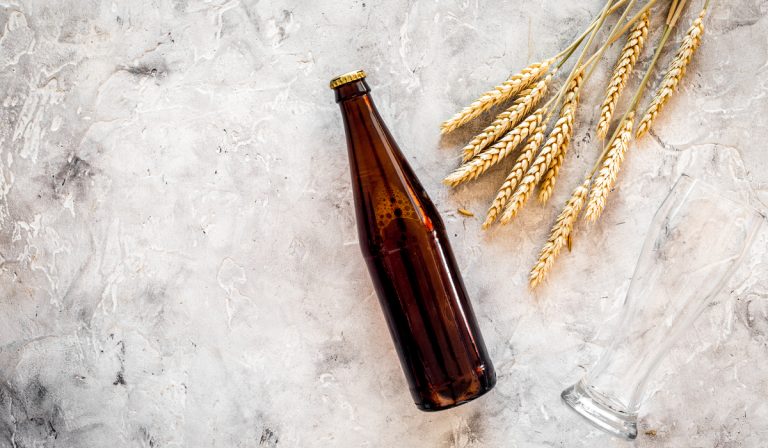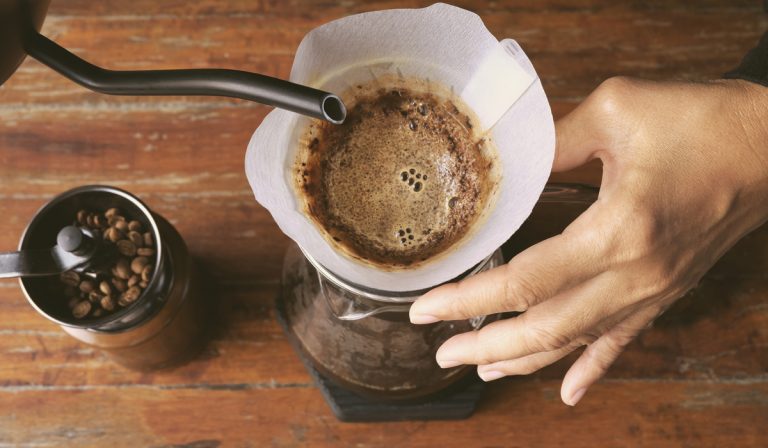Why Does My Beer Taste Sweet? (8 Causes and Solutions!)
If you are a beer drinker, you probably know that properly brewed beer should not be too sweet.
Sure, some beers like blonde ales can have a hint of malt sweetness. But this sweetness should not dominate the flavor of the beer – there should be a balance with the other flavors.
Why does my beer taste sweet?
Beers taste sweet for various reasons. These reasons can either be brewing-process-related or ingredient-related. For one, if you use too much base malt in your recipe or if the base malt is too sweet, your beer will taste sweet. Also, if your brew’s fermentation process is incomplete, your beer will taste sweet.
If you recently prepared an unusually sweet homebrew, do not fret. This problem is not uncommon amongst brewers, and you can solve it in a few steps.
Below, we discuss eight reasons why your beer tastes sweet. Alongside the reasons, we offer solutions to help you improve the flavor of your beer.
Table of Contents
Why Does My Beer Taste Sweet?
1. Pale Malt

If you make your beer with pale malt as the base malt, it may be sweeter than you expect.
A product of steeped, germinated barley grains, pale malt is the sweetest and lightest base malt. So, when you use it in your beer, you will likely end up with something sweeter than usual.
When choosing a base malt for your beer, you may want to opt for something besides pale malt.
Solution
Instead of pale malt, use pilsner, pale ale, Vienna, or Munich malt. Alternatively, you may lower the amount of pale malt you use in the recipe.
2. Too Much Caramel or Crystal Malt

Caramel or crystal malt is a specialty malt added to beer to introduce some sweetness.
Like pale malt, caramel malt comes from steeping and germinating barley grains. But the grains are steeped longer, producing more sugar from the barley grain starch.
Then, the kilning dries and darkens the starch, and the heat also caramelizes some sugar. Hence, the name caramel malt.
Caramel malt contains unfermentable sugars that don’t turn to alcohol.
If you use too much caramel malt in your homebrew, you may end up with beer that tastes sweet.
Solution
Reduce the amount of caramel malt in your recipe or replace caramel malt with a specialty malt that isn’t so sweet.
3. Too Much Unfermentable Sugar

It is common for homebrew recipes to include unfermentable sugar. But the problem with unfermentable sugar is that it remains unchanged during the fermentation process.
Consequently, it makes its way into the beer in its sweet, original form. Of course, if this happens, your beer may taste sweeter than expected.
If your beer tastes too sweet, check the recipe for ingredients such as lactose, maltodextrin, and dextrin.
Lactose is a homebrew sweetener. You will most likely find it in milk stouts. As you may have guessed, dextrin comes alongside malted grains such as caramel malt.
Maltodextrin is a natural byproduct of the homebrewing process, and brewer’s yeast typically ferments only 3% of it. If you add extra maltodextrin to beer besides the naturally occurring content, the beer may be extra sweet.
Solution
One solution to using too much unfermentable sugar is reducing the amount of such sugars in the recipe.
Alternatively, you can use fermentable sugars instead.
Sugars such as cane sugar and corn sugar are almost 100% fermentable. So, when you use them in your beer, you are less likely to get a sweet beer.
4. Incomplete Fermentation

In many cases, when your beer tastes sweet because of a fermentation issue, the fermentation is incomplete or stuck. You will get some residual sweetness if the fermentation process of your homebrew gets stuck or is incomplete.
Basically, if fermentation is not completed, some sugars will remain unchanged. These unchanged sugars will get into the final product, causing sweetness.
Incomplete fermentation may happen if you retrieve the beer while the yeast is still active. It may also come about because the process looks completed when it isn’t.
Solutions
- Ensure the brewing process runs for 7 to 14 days at the least.
- Before retrieving the brew, ensure fermentation activity stops and you see no frothing, bubbling, or any other sign of fermentation.
- Check the specific gravity of your brew with a hydrometer. If the specific gravity is close to or the same as the recipe, it is ready. But if it is far off, there is an issue with the brewing process. The final specific gravity of your brew should remain at or close to the expected value for at least three consecutive days.
- Fermentation is stuck when the final specific gravity is significantly higher than the final gravity in the recipe. So, if the specific gravity of your brew is way higher than the recipe, try adding a yeast starter or yeast nutrient.
- Alternatively, you may use a different yeast strain.
5. The Strain of Brewer’s Yeast You Worked With Is Not Very Attenuative

Different strains of brewer’s yeast have varying attenuative (or sugar fermenting) abilities. In other words, some strains ferment more sugar than others.
So, if your beer tastes too sweet, the yeast strain you used may not be as attenuative as you need it to be.
Yeast strains fall into three classes, depending on their apparent attenuation rate:
- High – strains that ferment around 76% to 80% of available sugars
- Medium – strains that ferment around 71% to 75% of available sugars
- Low – strains that ferment around 65% to 70% of available sugars
Besides their inherent attenuation rate, the flocculation (clumping) rate of yeast strains affects attenuation. Generally, yeasts that flocculate (clump together) early will have lower attenuation.
Of course, you will have more unfermented sugar in the final product with lower attenuation.
Solution
Switch to a yeast strain with a high attenuation rate and low flocculation rate.
6. There Aren’t Enough Hops

Hops introduce bitterness to beer. The bitterness from hops balances out any sweet flavor from unfermented sugar.
So, if you do not add enough hops to the brew, you may end up with sweet beer.
Besides the amount of hops you use, the time you add the hops is vital. If you do not add hops at the start of the boil, you may not get as much bitterness as you should.
Solution
You can fix beer sweetness caused by insufficient hops by adding extra hops. Add these hops at the beginning of the boil for the best results.
Adding extra hops to sweet beer is a quick fix for sweetness. But you could work on the actual problems instead of covering them up with hops.
7. The Mash Temperature Is Too High
During the mashing stage, hot water promotes the conversion of grain starch to sugar.
Mash water typically gets to between 148°F and 160°F while converting grain starch to sugar. But with higher temperatures, the profile of the sugars formed differs.
If the mash temperature is too high, the mash water will still form sugars. But more of those sugars will be unfermentable because temperature changes alter the activity of the enzymes. In the end, the final product will contain more unchanged sugar, making the beer sweeter.
Besides producing unfermentable sugar, high mash temperatures may also cause the production of tannins that cause bitterness.
Make sure you mix the solutions before measuring the temperature so that you get an accurate reading.
Your recipe should make room for a drop in strike water temperature when adding grains to the mix.
Generally, for every 1 pound of room temperature grain you add, the temperature should drop by 1 degree. However, if you are not getting the correct temperature after adding grains, adjust things by adding hot or cold water.
Solution
Try mashing at lower temperatures (around 148°F -160°F).

8. Boil Time Is Long
In the absence of any other issue, leaving your grain to boil for too long can cause caramelization. But this is typically not an issue.
Solution
Reduce the boiling time.
Final Thoughts
When making homebrew, use fermentable sugars and ensure you use enough hops and moderate amounts of base malt and specialty malt.
Work with yeast strains with high attenuation and low flocculation rates.
Then, do not let the mash temperature go very high and keep the boil time moderate. Also, ensure fermentation is complete before retrieving your brew.







